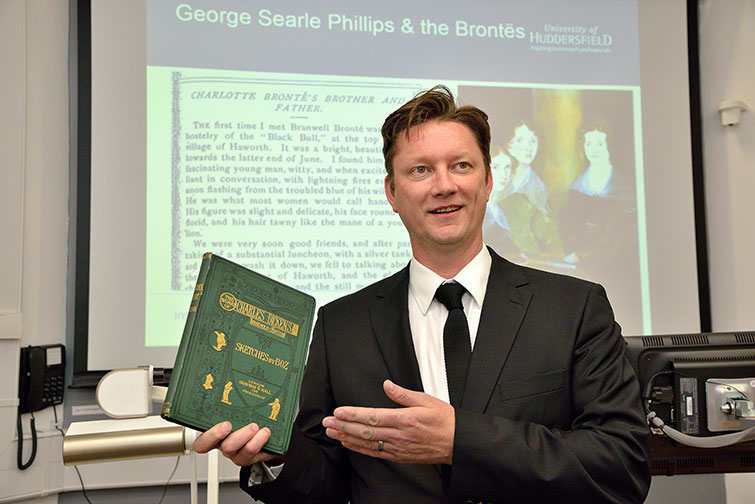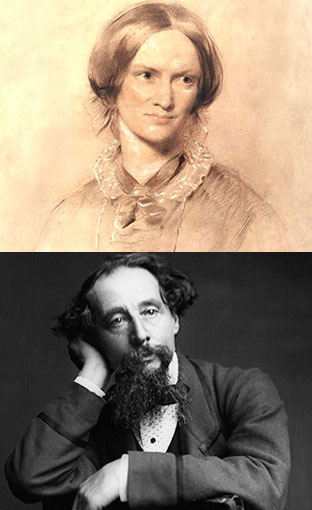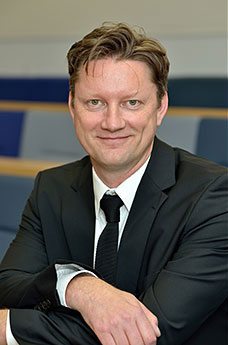175th Anniversary Lecture – Read All About It

Thu, 19 May 2016 16:08:00 BST
Dr Merrick Burrow explores the importance of literature and the arts in the Huddersfield Mechanics’ Institution
 ◄ Poetry flourished among the working classes during the Victorian period, a passion fostered at Mechanics’ Institutes and encouraged by leading authors such as Charlotte Brontë and Charles Dickens
◄ Poetry flourished among the working classes during the Victorian period, a passion fostered at Mechanics’ Institutes and encouraged by leading authors such as Charlotte Brontë and Charles Dickens
SOON after its foundation in 1841, the educational institution that would evolve into the University of Huddersfield gained a nationwide reputation for excellence. Scientific and technical subjects were on offer, but great importance was also placed on the arts, including literature.
This was a theme of the third in a series of public lectures taking place at the University to mark the 175th anniversary of the formation of the Young Men’s Mental Improvement Society, soon renamed Huddersfield Mechanics’ Institution.
The lecturer was the University’s Head of English and Creative Writing, Dr Merrick Burrow. He told his audience that he had at first suspected that literature would have been a marginal subject in the early years of the Mechanic’s Institution. “But it turns out, I was wrong,” he said.
Widely praised for the quality of its education, the Institution was described by one observer as “the best in England”. But the study on offer was not primarily vocational or focused on scientific or technical education, claimed Dr Burrow. There was – he discovered – a strong emphasis on art, history, music and literature.
A key figure in the early history of the Institution was George Searle Phillips, who was its secretary from 1846 to 1854. Also a prolific poet, author and journalist – using the pen name January Searle – he had a strong belief in the value of “a solid and practical education within the reach of the humblest means”.
One of Phillips’s articles described his encounters with Patrick and Branwell Brontë, father and brother of the literary sisters. The novels of Charlotte, Emily and Anne, and the significant educational themes and philosophy running through them, were an important element of Dr Burrow’s lecture. He also discussed authors including Elizabeth Gaskell and Charles Dickens, whose works were to be found in the library of the Huddersfield Mechanics’ Institution.
Dickens – a massively popular public speaker – was a great supporter of the mechanics’ institute movement, although he could also satirise it, and in Hard Times he presented “a memorable picture of bad education” in the purely fact-based schooling of Mr Gradgrind.
 Dr Burrow also discussed the vital influence of Samuel Smiles – author of the best-selling Self Help – and he outlined the Luddite risings of 1812, central to Charlotte Brontë’s novel Shirley.
Dr Burrow also discussed the vital influence of Samuel Smiles – author of the best-selling Self Help – and he outlined the Luddite risings of 1812, central to Charlotte Brontë’s novel Shirley.
The Huddersfield Mechanics’ Institution placed emphasis on self-respect and self-help, said Dr Burrow, and as part of its mission it “sought to address the threat of social crisis that accompanied the economic and technological vicissitudes of industrial towns”.
“The fear of Luddite violence associated with assemblies of young working-class men in the West Riding was thereby transformed by the Institute in practices of self-cultivation, and emphatically, of self-discipline, in the spirit of Samuel Smiles.”
Dr Burrow concluded by emphasising the importance of literary culture to the educational philosophy of the institution founded in 1841, and he found continuities between past and present, for example in the passion for literature fostered among contemporary students.
“The education that we provide to students today is not only inspiring to them, but also inspiring to us,” he said.
- There is one more public lecture in the 175th anniversary series. On Wednesday 25 May, Dr Martyn Walker joins the University’s Affiliate Professor of Chemistry, Rob Brown, to explore how chemistry teaching and research has evolved since 1843, when Huddersfield Mechanics’ Institution offered its first courses in a subject that was of vital importance to local and national industry. Free of charge, it take place in the University’s West Building Lecture Theatre at 7pm. To reserve places visit http://www.hud.ac.uk/events/ or for further information, contact Sybilla Daley on 01484 471568 or e-mail events@hud.ac.uk.







